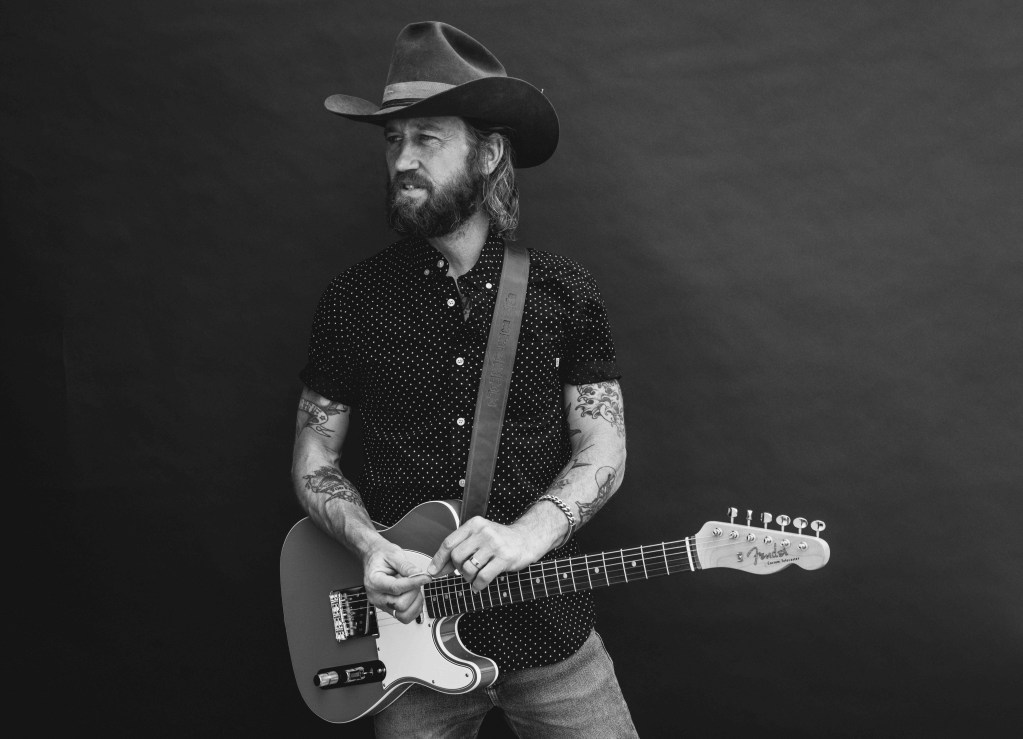Chris Shiflett grew up in Santa Barbara and went on to become a guitar player in some of the biggest bands in the world — Foo Fighters, No Use for a Name, and Me First and the Gimme Gimmes. Now he’s got a new solo record out, a summation of all that came before: Hard Lessons, released June 14, is a record full of rocking retrospection. I spoke to Shiflett about the recording process, heartache, and the good old days of Santa Barbara’s music scene.
Has your work become more autobiographical over the course of your career? Without any doubt. I’ve taken such a different view on lyrics — I used to write lyrics kind of just as an afterthought, because you had to. My whole perspective on writing lyrics has changed a lot over the years. I don’t think of my music as being straightforward country music at all; rock people call it country, and country people call it cowpunk. It’s really neither. It’s sort of all the influences of what I’ve listened to over the years get jumbled together. The country-music lyrical side of things is where I’ve been influenced the most. Country tends to be stories; rock tends to be esoteric poetic ramblings.
Producer David Cobb wanted you to use a Marshall JCM800 guitar amp for this record. How did it shape the sound? It shaped it in a big way. Cobb had that in mind for whatever reason. The JCM800 kind of became the center piece for the guitar tone; it’s on just about every song, I think. It’s certainly a more rock ’n’ roll record than the last one.
Do you feel recording culture in Nashville is different than in L.A.? Is the former more gear-focused, for example? There’s the sort of stereotypical Nashville, where you come in for your session and get your song done in three hours, but that’s not how we make these records. The process has been different than any other records I’ve made in my life, but that comes down to Dave Cobb. He’s got a way that he makes records, and it’s a lot of fun. You get in there, play the new songs, and it’s the first time he’s heard it. He soaks it up, jams on it with me, and we come up with a basic arrangement laying down takes.
One of the lead singles is “Welcome to Your First Heartache.” Do you remember your first heartache? It’s funny you bring that up. That’s what I was kind of writing the song about. My oldest son is 15, going on 16, and he had his first teenage romance. I sort of wrote that song projecting onto him that he was going to get his heart broken, sort of reflecting on my own romantic failures as a kid, but I think you do that a lot as a parent. Being a parent dredges up all this stuff that you’ve sort of lived through.
Does being from Santa Barbara inspire your current musicianship? Without a doubt. We didn’t know how good we had it. There was a really vibrant music scene here, and I’m talking about in the ’80s and the ’90s. I moved out of Santa Barbara in January 1990. All those years in high school playing around town, there were so many other bands, so many places to play. All the bands that came out of there — Toad the Wet Sprocket, Ugly Kid Joe, Summer Camp, Dishwalla — all those cats were around and playing, and a whole lot more. I might be looking back with rose-colored goggles, but it seemed like we were playing all the time, whether at keg parties or Carnival or Club Iguana. I see with my kids now; they don’t have that — that whole “let’s form a band and play our friend’s party or talent show.” I don’t think that exists anymore.
How has being in a nonvocal or supportive role in other bands influenced or informed you as a frontman? They’re very different roles. In Foo Fighters, I have a front-row seat to watch Dave [Grohl] do his thing as a band leader or frontman playing live — you can’t help but learn some good lessons there. He’s one of the best.
What’s something you’ve learned from him? I wish I had his ability to command a crowd. That guy is just next level. If there’s one thing, it’s the way that he connects to a crowd by telling a story between songs, which is, I think, important when you’re playing live. People are there and want to be entertained and feel like they’re with you and you’re with them. There’s a million different ways to do it, but it’s more fun for me if I feel there’s some kind of connection.
Anything else you’d like to say? I’m glad the Independent’s still going when most of the local weekly print magazines and newspapers are gone. It’s a little piece of my childhood.

